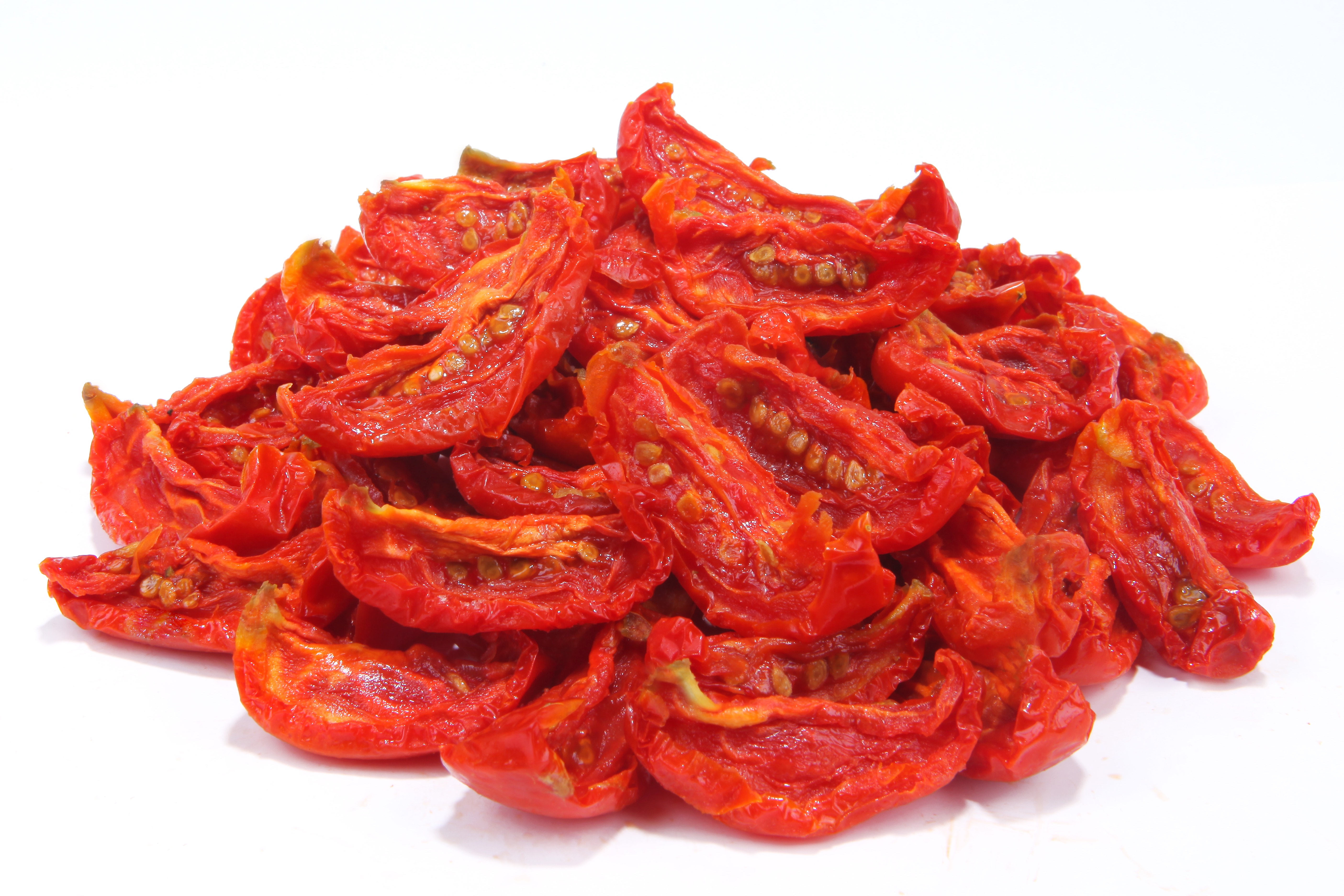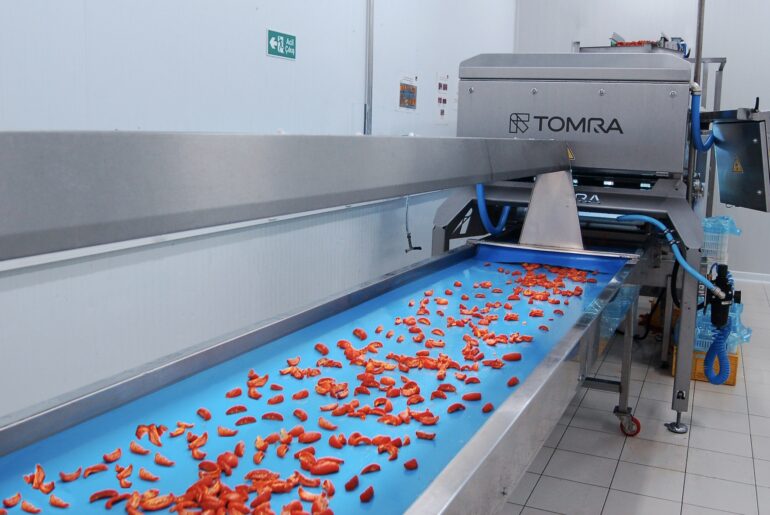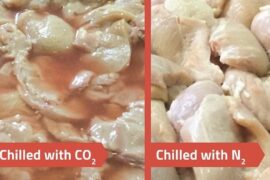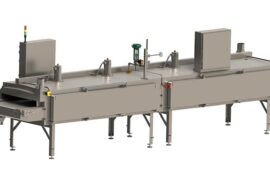DFS Gıda was founded in 2011 in Manisa, Turkey’s Aegean region, by Hami Özer and Irfan Ertekin. The first three letters of the company’s name come from the abbreviation for “Dried Food Solutions,” thus spelling out specialization in the processing of dried tomatoes and semi-dried frozen tomatoes.
With 60% of its output sold in Europe, DFS Gida exports products to 13 markets around the world including the USA, Australia and a number of Asian countries. As part of its quality assurance program to meet the high standards demanded by international buyers, the company relies on TOMRA Food’s sorting systems expertise.
Turkey is ranked as the leader in dried and frozen semi-dried tomato product exports, with some 15 enterprises in the transcontinental nation selling to external markets. DFS Gıda is one of the biggest companies operating in the sector, with a 10,000-square-meter indoor facility dedicated solely to the production of semi-dried frozen tomatoes sourced from local farmers. It started using TOMRA’s Blizzard sorting equipment in November of 2021.

Özer explained what led to the capital investment: “Depending on the harvest, we produce about 3,000 tons of semi-dried frozen tomatoes annually, and between 500 and 700 tons of sun-dried tomatoes. The Turkish domestic market seldom buys dried tomatoes and never buys semi-dried frozen tomatoes dried in ovens. Therefore, we export all of our production. All buyers expect the highest food safety and quality standards. This is why we rely on TOMRA’s sorting technology, to achieve standards not possible with hand-sorting.”
Turkey Leads the Way
Sun-dried tomato production began in Turkey 30 years ago, while the semi-dried frozen tomato business dates back to 2000.
“In 2021, total exports of dried processed tomatoes was around 40,000 tons,” said Ertekin. “Some 17,000-18,000 tons are semi-dried frozen, and some 22,000-23,000 tons are dried and processed tomatoes. No country other than Turkey exports these products. This is because producers in other nations sell exclusively to their domestic markets.
He continued: ”Although export volumes are not so big, Turkey needs to maintain its leadership position for quality. This is why it is crucial for us to use high technology in production, and why DFS is exceptional in this industry for its commitment to investing in such technology.”
Peak Harvest Season Pressure
“We are completely tied to the land and its cycles,” said Özer. “Harvesting starts in July and, depending on the weather, continues until the end of September or beginning of October. Having to process these products with no margin for error and in high volumes in such a short time, it is appreciated that the Blizzard optical sorting machine will offer high performance in a busy season — even during long shifts.”
The Blizzard system ensures that plant-based foreign materials are eliminated during the sorting phase, while also detecting and ejecting color defects in tomatoes.
Ertekin added: “DFS’s investments in automation, including TOMRA’s sorting solutions, underscore the importance we place on food safety. We are leaders in growing and monitoring products, and we need to ensure they contain no foreign materials or defects. TOMRA’s machine offers benefits in operating costs and eliminates defects that cannot be seen while sorting by hand. This is how we provide high quality and food safety while also improving productivity.”
About TOMRA Food
Leuven, Belgium-based TOMRA Food, a division of the Asker, Norway-headquartered TOMRA Group, designs and manufactures sensor-based sorting machines and integrated post-harvest systems to maximize food safety and minimize food loss. The company has more than 12,800 units installed at the sites of growers, packers and processors around the world engaged in the vegetable, fruit, nut, seed, grain, confectionery and other sectors.






